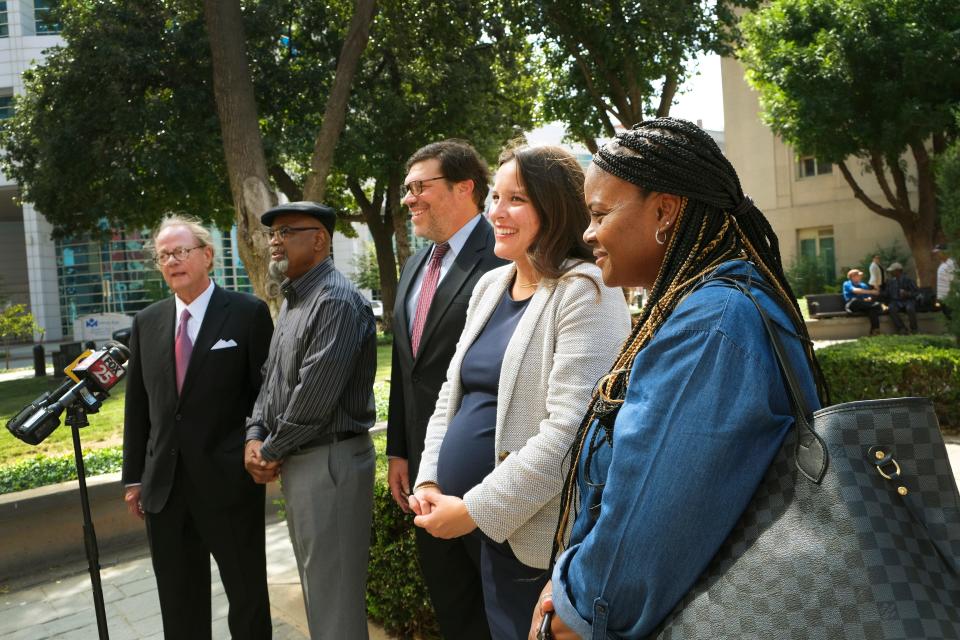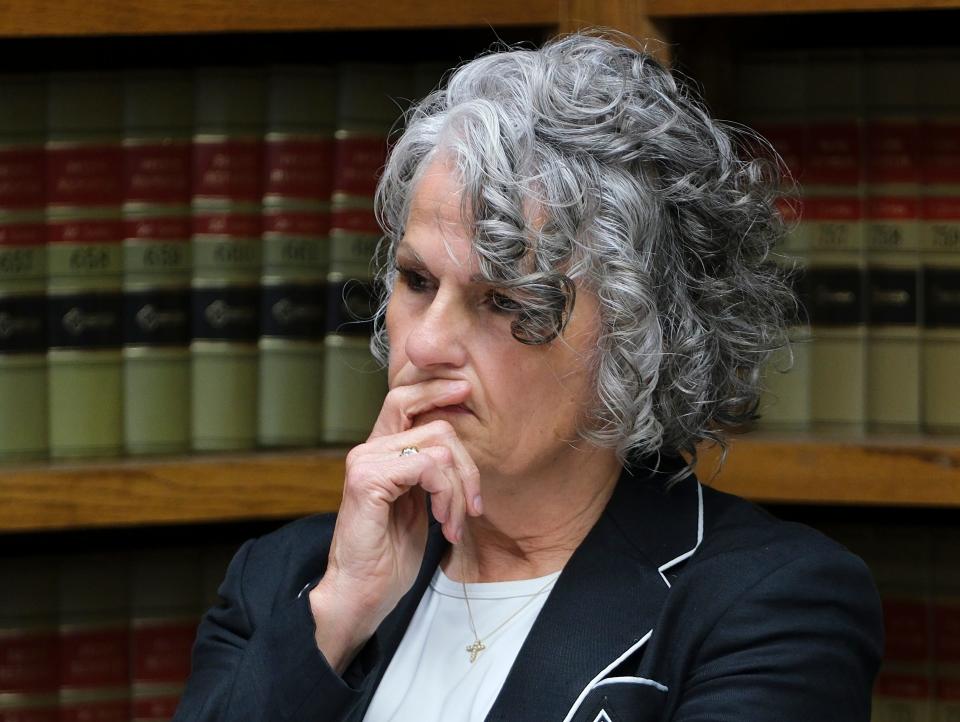Lawyers say Glynn Simmons, released after 48 years in prison, should be found 'actually innocent.'
Attorneys are advocating for the Oklahoma County District Court to determine a man they believe served the longest wrongful conviction in U.S. history to be "actually innocent" of a 1974 murder. That designation would better allow him to pursue compensation for his time served, as well as reintegrate into public life, lawyers say.
Glynn Simmons, who was recently released from prison after serving 48 years for a murder conviction, saw his sentence dismissed in September after Oklahoma County District Attorney Vicki Behenna decided not to pursue a retrial. Simmons has always maintained he did not commit the crime.
Last Monday, Simmons' attorneys John Coyle and Joe Norwood filed a motion to update the DA's dismissal of the case with a finding of "actual innocence," arguing that county authorities have the jurisdiction to do so.
"Mr. Simmons has shown by clear and convincing evidence he did not commit the crime for which he was convicted, ... and moves this Court for a finding" of actual innocence, the attorneys wrote.
More: With Glynn Simmons free, is Carolyn Sue Rogers' 1974 murder now a cold case?
Coyle and Norwood cited a lineup report that had not been provided to Simmons' trial lawyer, a violation of the Brady rule which the DA's office admitted was enough cause to release Simmons earlier this year for lack of a fair trial.
The lawyers also emphasized the various alibi witnesses who testified that Simmons was still in Louisiana at the time of the murder. In addition, the attorneys pointed to the expert testimony of psychologist Dr. Curt Carlson, who highlighted discrepancies in the eyewitness identification by Belinda Brown, an 18-year-old customer at the time of the robbery who survived being shot in the head.
Simmons was convicted of murder in the death of Edmond liquor store clerk Carolyn Sue Rogers after a fatal 1974 robbery. He was 22 when he was convicted; he is now nearing the age of 71. His time in the Oklahoma prison system exceeded the nearly 46 years served by Richard Phillips after a wrongful murder conviction in Michigan.

"Although the case being dismissed has been a relief for Mr. Simmons because he is finally free, it is not the full relief he deserves," said Amber Leal, an attorney with Coyle's firm who also has represented Simmons in court. "After being incarcerated for 48 years for a crime he did not commit, he deserves to hear the words 'you are innocent' from the court system."
Simmons' legal team is exploring ways to see if recompense for time served could be secured for Simmons, who they said might at least be eligible for $175,000 under state tort claim law.
Norwood believes a declaration of "actual innocence" for Simmons would be the best way of helping Simmons reintegrate into public life, officially clearing his name and granting him adequate financial means amid serious health issues.
"That has to happen for the statute for Glynn to qualify for the tort claim money," Norwood said.
Oklahoma district attorney likely to object to claim of innocence for Glynn Simmons

The request from Simmons' attorneys acknowledged that "the State of Oklahoma objects to this motion."
Spokespeople for Behenna have been cautious to not describe the dismissal of Simmons' case as an exoneration, instead claiming they only could not prove the case against Simmons "beyond a reasonable doubt."
"Exoneration includes the claim of having been found innocent of blame, but it can also include the act of relieving someone of blame," said Brook Arbeitman, director of communications for Behenna. "Mr. Simmons was not found innocent by the Court and we could not make a representation to the Court that Mr. Simmons was innocent because we have an eyewitness who has and continues to stand by her identification of Mr. Simmons."
In a previous announcement of Behenna's decision to vacate Simmons' conviction, Arbeitman provided additional reasons why the DA could not definitively prove the case against Simmons, including the facts that another surviving eyewitness, Norma Hankins, and several investigative detectives had died in the years since the trial.
The DA's office also said "there is no longer any physical evidence" in the case, while Simmons' legal team argues the conviction had relied solely on eyewitness misidentifications.
"This is not a case where there is new evidence of factual innocence," Behenna said in April. "There's not new DNA evidence. There's not a witness that has recanted their testimony."
Another man, Don Roberts, also was convicted of Rogers' murder. He and Simmons were both initially sentenced to death row, before a 1977 U.S. Supreme Court ruling caused their sentences to be modified to life in prison. Roberts was eventually paroled in 2008 but, according to law enforcement, his conviction still stands.
This article originally appeared on Oklahoman: Attorneys request Glynn Simmons be found 'actually innocent' of murder

